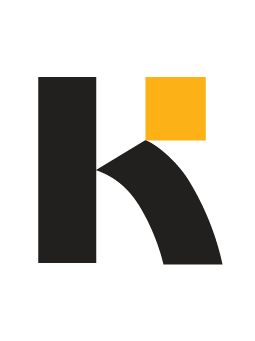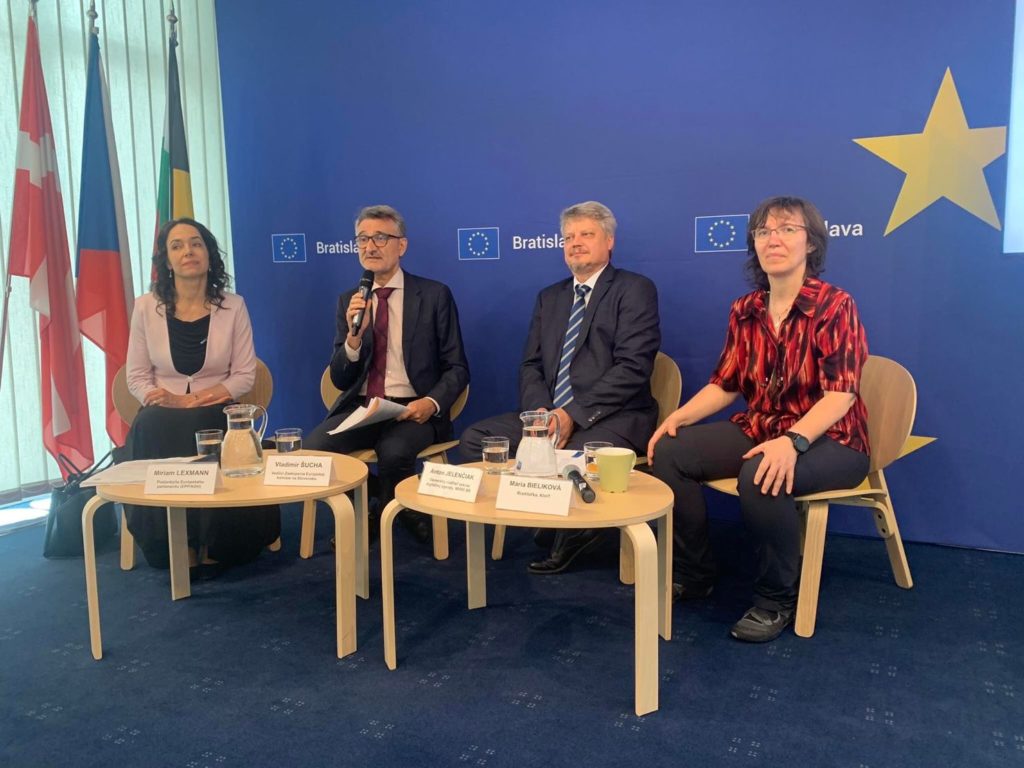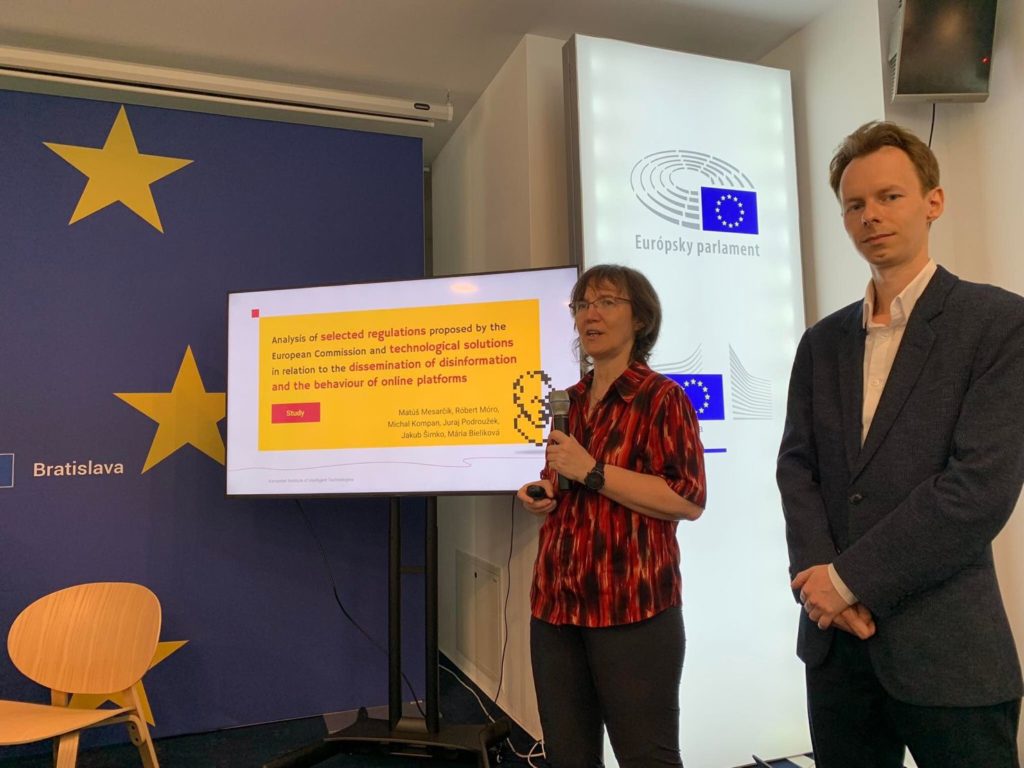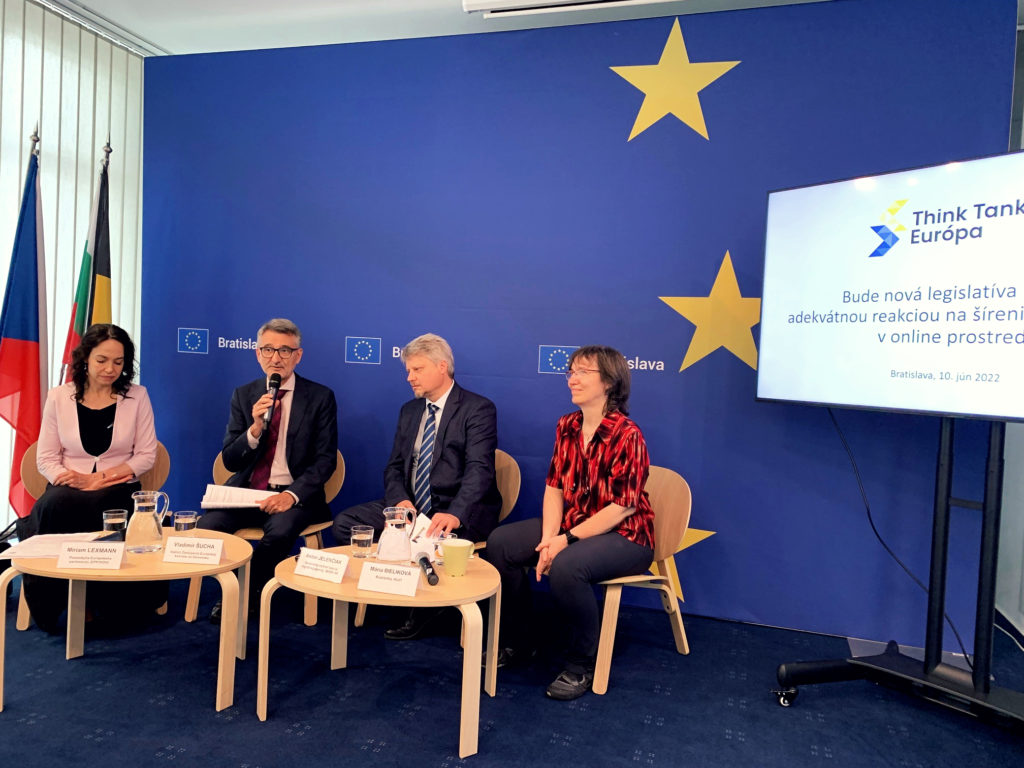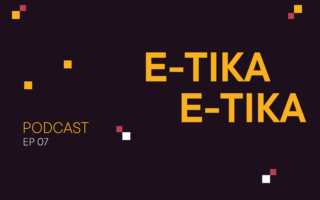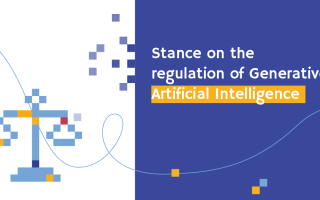What's
European Commission Representation in Slovakia: Discussion on legislation against disinformation
Online platforms have fundamentally changed the way we access information. According to the Reuters Institute study of 2021, 56% of respondents use social media as a news source in Slovakia. But we must keep in mind that their mission is not to objectively inform their users.
The objective of online platforms is to attract users’ maximum attention to maximize profitability of their ads. They use recommender systems to reduce the information load on users by filtering relevant information. Unfortunately, misinformation thrives on social media platforms, which leads to the polarization of society.
Regulation of online content represents one of the major challenges for legislators in Slovakia and across the EU. Recently, we have analyzed selected regulations proposed by the European Commission concerning the dissemination of disinformation and the behavior of online platforms for Miriam Lexmann, Member of the European Parliament.
We have identified the key issues of using these personalized approaches. We also came up with recommendations on how to limit the spread of disinformation. You can read more about the possible impacts of disinformation spreading and about our proposed rules in our analysis.
On June 10th 2022, the European Commission Representation in Slovakia organized an expert discussion on the topic of dealing with disinformation with legislation. Several stakeholders presented their stance, including Miriam Lexmann and Anton Jelenčiak (Director General of the Digital Agenda Section, MIRRI SR). The discussion was moderated by Vladimír Šucha (Head of European Commission Representation in Slovakia).
Mária Bieliková and Matúš Mesarčík had the opportunity to present our analysis which aimed to contribute to the ongoing debate on how to regulate online platforms and the artificial intelligence systems that these platforms use.
Different types of EU and national legislation were discussed from the perspective of the fight against disinformation. Overall, the participants agreed that legislation will help and believe that the Digital Service Act, AI legislation as well as a series of Slovak national legislative measures will contribute to controlling and reducing the spread of false information.
It was a very insightful discussion. We appreciate the opportunity to be part of this initiative and believe that we have made progress towards addressing the spread of disinformation in Slovakia.
